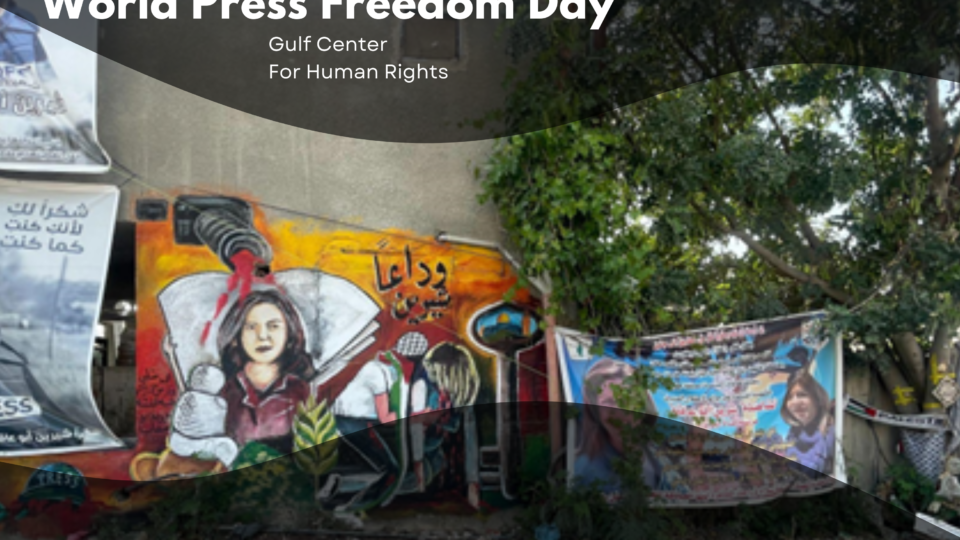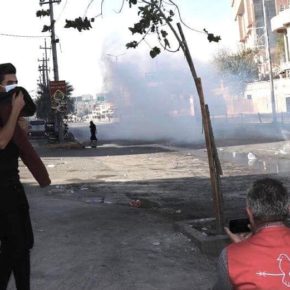On World Press Freedom Day, GCHR called for better protection for journalists and freedom of expression in the MENA region.
To access the complete report, simply click here,
On World Press Freedom Day, celebrated every year on 03 May, the Gulf Centre for Human Rights (GCHR) called on the authorities in the Middle East and North Africa (MENA) region to protect the right to freedom of expression, and end attacks on journalists.
This year marks the 30th anniversary of World Press Freedom Day, which coincides with the 75th anniversary of the Universal Declaration of Human Rights. The theme is “Shaping a Future of Rights: Freedom of expression as a driver for all other human rights”.
Iraq: An Iraqi woman journalist has written an investigative report about sexual harassment and sexual assault of women journalists at work, largely by their senior colleagues, which is making women leave their jobs. The investigation features the story of an anonymous woman journalist who had to leave her job – and even her city – after being sexually harassed, to focus on the issue of why so many women in Iraq cannot continue in the profession. She writes, “A large proportion of society is aware of widespread harassment in the streets, resulting from an exacerbated hypermasculinity. However, statements by several Iraqi women journalists confirm that this phenomenon did not spare women in press and media outlets, forcing a considerable number of them to quit journalism for good.”
The article notes that, “According to a survey conducted by a research team commissioned by the Press Freedom Advocacy Association in Iraq, 41% of working women journalists have been subjected to different kinds of harassment, and 15% of them were forced to leave their jobs and move to other organizations, whereas 5% quit their profession for good.”





